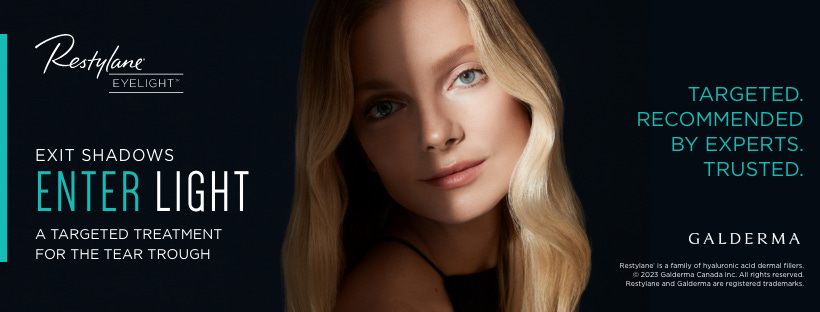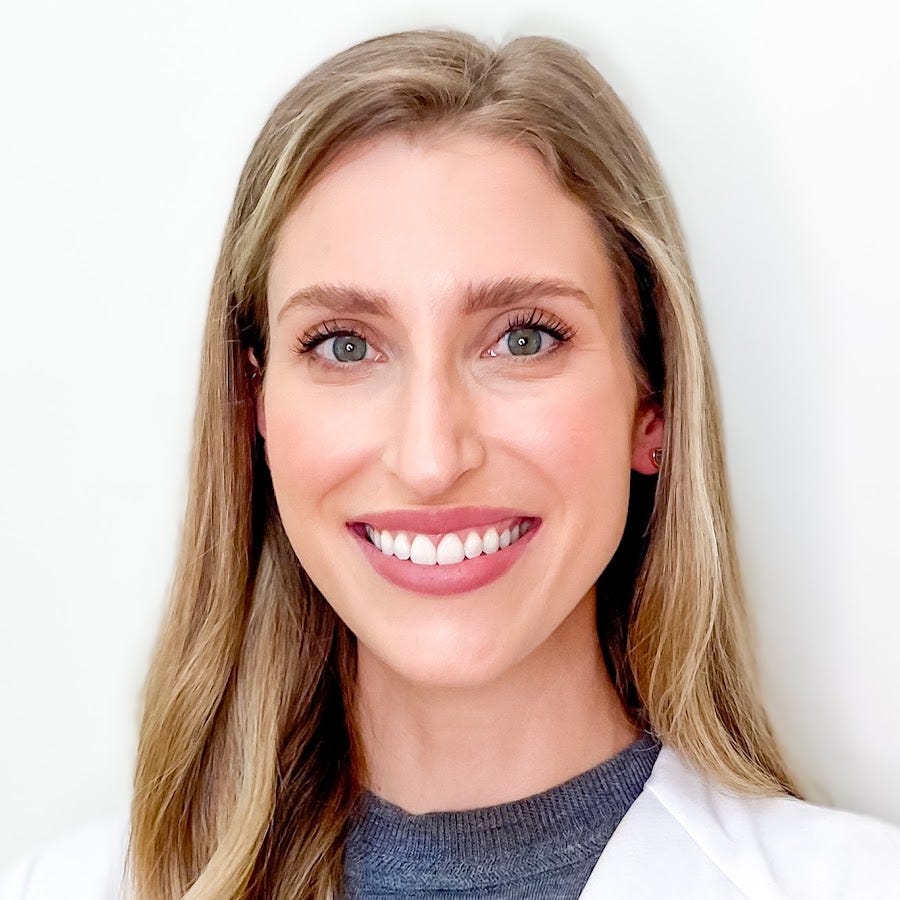The effects of oral supplementation of natural keratin hydrolysate on skin aging
Today’s report also covers research into metabolic syndrome and female pattern hair loss in premenopausal women, pemphigus and pregnancy, and more (1,480 words, 7 minutes)
Keratin supplements are gaining popularity because of their potential benefits for skin, hair, and nail health. A recent study published in the International Journal of Cosmetic Dermatology on October 4, 2024, found that a keratin hydrolysate supplement derived from poultry feathers significantly reduced signs of aging in adult women after 90 days of use.
In this multicentric, randomized, double-blind, placebo-controlled study, 99 healthy women aged 35 to 65 were recruited by dermatologists. The participants were randomly divided into three groups to receive daily doses of 500 mg or 1,000 mg of FKH or a placebo for 90 days. Evaluations of skin properties such as wrinkles, hydration, and firmness, along with hair and nail gloss and strength, were conducted at the trial's start, midpoint, and conclusion.
The study results revealed that participants who received the FKH, particularly the 1,000 mg dosage, significantly improved skin hydration and elasticity compared to the placebo group. The treatment correlated with decreased wrinkle depth and heightened skin firmness, leading to a generally more youthful appearance of the skin. Moreover, the skin’s fibre network and thickness experienced beneficial alterations, implying that FKH could contribute to decelerating the skin's aging process. Subjective self-evaluations corroborated these outcomes, as participants noted an improved sensation and appearance of their skin.
The researchers also found that the FKH improved nail hardness and hair gloss, particularly in those receiving higher dosages. The authors note the FKH’s high concentration of free amino acids and low molecular weight may have contributed to its absorption and efficacy. They emphasize this might suggest that amino acids play a crucial role in skin and hair regeneration.
Overall, most of the study’s participants tolerated the FKH treatment well. Minor side effects, such as mild gastrointestinal discomfort, were equally distributed among all groups, including the placebo. While the study’s results suggest that FKH supplementation could be a viable option for improving skin, hair, and nail quality in aging women, more research is needed to explore its long-term effects.
The Takeaway: The authors suggest that the supplement’s rich concentration of free amino acids likely facilitated its quick absorption, highlighting the link between amino acids and skin and hair regeneration.
From the literature on women in dermatology
Prevalence of metabolic syndrome in premenopausal women with female pattern hair loss
A case-control study published in Cureus assessed the prevalence of metabolic syndrome in premenopausal women with female-pattern hair loss (FPHL). The researchers found a significant association between waist circumference and body mass index and FPHL in premenopausal women, suggesting a link between FPHL and metabolic syndrome.
The authors conducted a two-year case-control, hospital-based observational study. The final review included 62 patients, 31 cases and 31 controls. The results showed that the mean waist circumference and body mass index were statistically higher in cases than in controls. The study found no statistically significant differences between the case and control groups for most parameters, including fasting triglyceride levels, HDL cholesterol, fasting blood glucose, and insulin resistance. However, fasting insulin levels were slightly different in both groups.
A novel cosmetic formulation rapidly reduces hair shedding in women
A study in the Journal of Cosmetic Dermatology investigated the effectiveness of DA-OTC-002, a topical treatment combining alpha-1 adrenergic receptor agonists and trace amine-associated receptor agonists for preventing hair loss in women. The researchers found that the DA-OTC-002 treatment significantly reduced hair shedding in women and exhibited rapid efficacy, showing results within five minutes of application with no adverse effects.
For this study, 76 healthy female participants applied either DA-OTC-002 or a placebo before standardized hair brushing to assess immediate shedding. The results showed a significant reduction in hair loss among the DA-OTC-002 group, with an average of 13.62 hairs shed compared to 36.26 in the placebo group, representing a 62.5% decrease.
Efficacy and safety of combined nicotinamide, magnesium ascorbyl phosphate and hyaluronic acid versus hydroquinone in women with melasma
A study in Clinical, Cosmetic and Investigational Dermatology assessed the tolerability and efficacy of a product containing nicotinamide 10%, magnesium ascorbyl phosphate 5%, and hyaluronic acid 5%, compared to hydroquinone 4% in treating women with facial melasma. The researchers found that while both treatments improved melasma, 4% hydroquinone was slightly more effective than the combined product in reducing melasma severity and colourimetric luminosity.
In this randomized, double-blind trial, 50 women with facial melasma applied either the combination product or hydroquinone for 60 days, with evaluations conducted at baseline, 14 days, and 60 days. The results showed that both treatments significantly improved melasma, with hydroquinone being slightly more effective. Both treatments were well-tolerated.
Pemphigus and pregnancy
A review published in the Indian Dermatology Online Journal examined pemphigus management during pregnancy, highlighting its complexities and the need for comprehensive care. The researchers found the disease commonly flares during the first and second trimesters, and maternal risks include mainly complications during postpartum due to hormonal changes. They also found that fetal risks are primarily associated with severe maternal cases and high maternal autoantibody levels, which can lead to outcomes such as neonatal pemphigus, prematurity, and, in some cases, stillbirth.
For this study, the authors searched PubMed using the keywords “pemphigus” and “pregnancy,” screening publications from 1950 to May 11, 2023. The final review included 83 articles.
VIDEO: Exploring the Complexities of Dermatological Surgery: A Conversation with Dr. Sweta Rai
Dr. Sarah Walsh, consultant dermatologist and Clinical Lead for Dermatology at King’s Hospital in London, and Dr. Sweta Rai, dermatologist and surgeon at King’s College Hospital in London, discuss a recent Swedish study on complicated surgeries. Dr. Rai offers a unique U.K. perspective on defining surgical complexity and the challenges of treatments such as cryotherapy.
A case of successful treatment of hyaluronic acid-induced facial necrosis
A case study in Cureus described a woman in her 30s who developed facial skin necrosis three days after hyaluronic acid injections in her right nasal fold. Painless skin blanching occurred immediately during the injection, prompting local hyaluronidase injections. She was also administered methylprednisolone and ASA, but her condition worsened. Laboratory results showed elevated C-reactive protein and grade II lymphopenia, but liver, kidney, and coagulation results were normal. The patient was administered intravenous continuous dinoprostone, oral methylprednisolone, and oral ASA. Local treatment included daily disinfection with chlorhexidine and paraffin gauze. Clinical improvement became evident within 24 hours. After seven days of treatment, she was discharged with nearly complete healing, and full recovery was observed at a one-month follow-up.
Coming Up in Women in Derm
Oct. 19 → Skin Basics for Primary Care
This month:
October is ADHD Awareness Month
October Breast Cancer Awareness Month
October is Lupus Awareness Month
Oct. 1 to 7 is HPV Prevention Week
Oct. 1 to 7 is National Breastfeeding Week
Oc.t 10 is World Mental Health Day
Oct. 12 is World Arthritis Day
Oct. 13 is National metastatic breast cancer day
Oct. 15 is Pregnancy and Infant Loss Remembrance Day
Oct. 20 to 26 is Invisible Disabilities Week
Oct. 19 is National Psoriatic Arthritis Day
Oct. 29 is World Psoriasis Day
Something to think about
“You need to be really careful when it comes to cosmetic treatments because you're going to want to adjust every little thing to try to make yourself a 10 out of 10. And little imperfections, small asymmetries, signs of aging — those are what make you look like YOU and make you look normal. And it's so much better. So, do not fall into the trap.”
— Dr. Samantha Ellis, a Danville, Calif.-based dermatologist, providing advice to patients in an interview with Mamamia.






